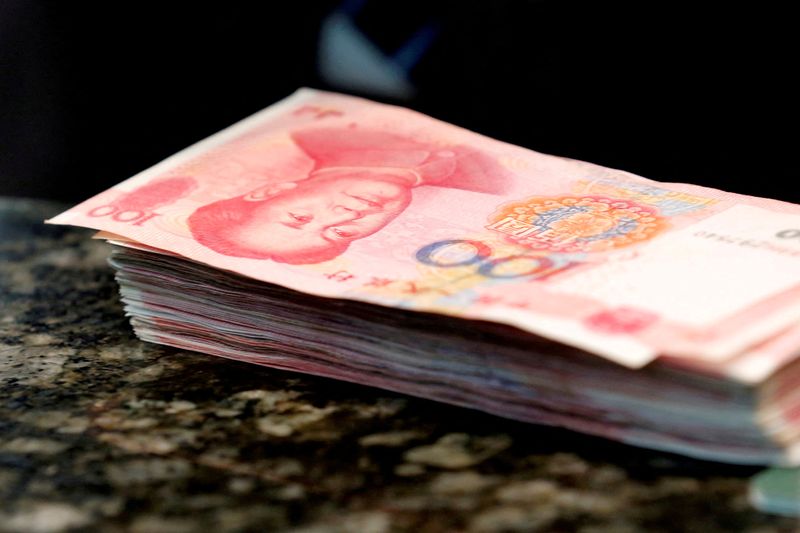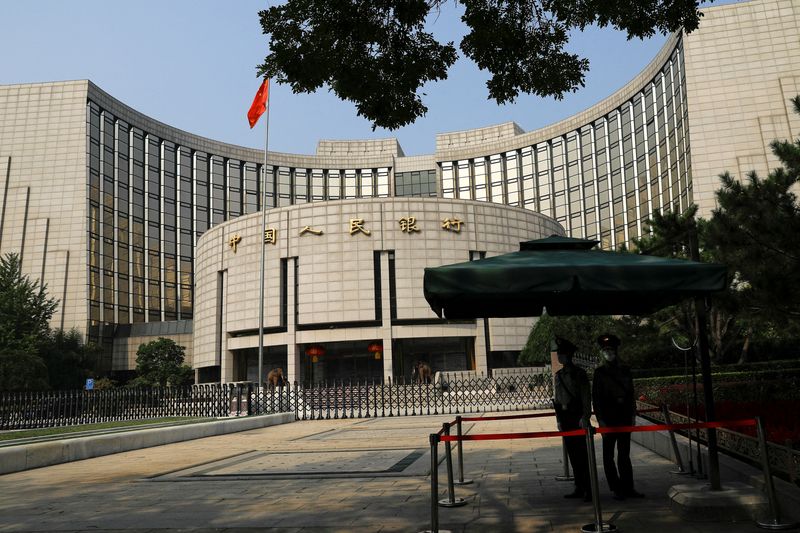By Jamie McGeever
(Reuters) - A look at the day ahead in Asian markets from Jamie McGeever, financial markets columnist.
Asian market trading will be lighter than usual on Monday with no major regional economic data scheduled and U.S. markets closed, leaving investors to gear up for the first major event of the week on Tuesday - China's interest rate decision.
The People's Bank of China is likely to cut its one- and five-year loan prime rate (LPR) lending rates by 10 basis points to 3.55% and 4.20%, respectively, its latest attempt to bolster China's creaking economy and steer it away from deflation.
The PBOC earlier this month cut its medium-term policy loan rate for the first time in 10 months, paving the way for cuts in the benchmark LPR rates and bucking the global trend of raising rates to get inflation back down to policymakers' targets.
It's little surprise that the yuan is under heavy selling pressure - down 4% in the last couple of months and hovering at seven-month lows. Looser monetary policy will do little to reverse these dynamics.
Investors on Monday may also keep an eye on headlines from U.S. Secretary of State Antony Blinken's visit to Beijing, the first top American diplomat to visit China in five years amid frosty bilateral ties and dim prospects for progress on the long list of disputes between the world's two largest economies.
Looking ahead and beyond China, investors have two other Asian monetary policy decisions this week to digest - Indonesia's Bank Indonesia (BI) and the Philippines Bangko Sentral ng Pilipinas (BSP) on Thursday.
Both are likely to leave policy unchanged, with BI maintaining its benchmark lending rate at 5.75% and the BSP keeping its key policy rate at 6.25%.
The broader market tone across Asia on Monday could be one of caution, with investors tempted to take some profits from the recent rally. Japanese stocks have surged 20% in two months and are at a 33-year high, while the MSCI Asia ex-Japan index last week jumped 3%, its best week since January.
Other potential market-moving events from the region later in the week include data on Japanese consumer price inflation for May on Friday. The annual core CPI rate is expected to ease to 3.1% from 3.4% in April.
The Bank of Japan last week left its ultra-loose policy unchanged and signaled it is in no rush to change its dovish stance even though inflation has exceeded the BOJ's 2% target for over a year.
Contrast that with the more hawkish posture of other major central banks around the world and it is little surprise that the yen is on the defensive - on Friday it hit a 15-year low against the euro.
Here are key developments that could provide more direction to markets on Monday:
- Bank of Korea Governor Rhee Chang-yong speaks

- U.S. Secretary of State Antony Blinken in China
- Hong Kong unemployment (May)
(By Jamie McGeever; Editing by Leslie Adler)
